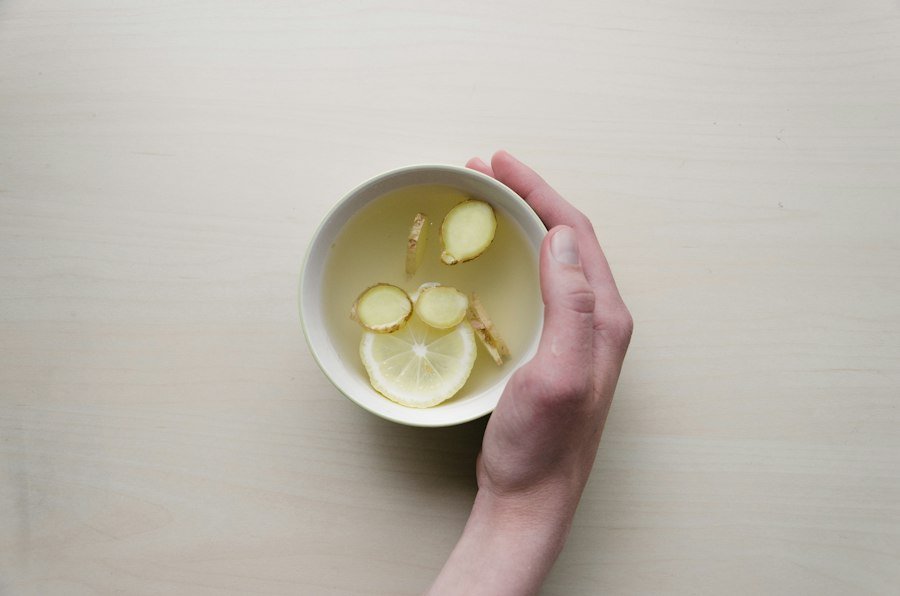Health and wellness are highly valued in Chinese culture, with a long history of traditional medicine and practices that focus on maintaining balance and harmony within the body. Learning Chinese phrases related to health and wellness can be beneficial for both personal well-being and cultural understanding. By understanding and using these phrases, you can communicate effectively with Chinese speakers about topics such as healthy habits, exercise, stress management, and traditional medicine.
Learning Chinese phrases related to health and wellness can have numerous benefits. Firstly, it allows you to communicate more effectively with Chinese speakers when discussing topics related to health and well-being. This can be particularly useful when traveling in China or interacting with Chinese-speaking communities. Additionally, learning these phrases can deepen your understanding of Chinese culture and traditions, as health and wellness are deeply ingrained in the Chinese way of life. Finally, incorporating these phrases into your daily life can help you prioritize your own health and well-being, as you become more mindful of healthy habits and practices.
Table of Contents
ToggleKey Takeaways
- Chinese language has a rich vocabulary for health and wellness.
- Basic Chinese phrases for health and wellness include greetings, asking about symptoms, and expressing gratitude.
- Common Chinese expressions for maintaining good health include advice on diet, exercise, and rest.
- Essential Chinese vocabulary for eating healthy includes words for different types of food and cooking methods.
- Chinese phrases for exercise and fitness include words for different types of exercise and encouragement to stay active.
Basic Chinese Phrases for Health and Wellness
When learning Chinese phrases for health and wellness, it is important to start with the basics. Common greetings such as “ni hao” (hello) and “zai jian” (goodbye) can be used in any context, including when discussing health-related topics. Additionally, learning phrases such as “wo hen hao” (I am very good) or “wo bu shufu” (I am not feeling well) can help you express how you are feeling physically.
Pronunciation is key when learning any new language, including Chinese. Beginners should pay attention to tones, as the meaning of a word can change depending on the tone used. For example, the word “ma” can mean “mother” (first tone), “hemp” (second tone), “horse” (third tone), or serve as a question particle (fourth tone). Practicing pronunciation with a native speaker or using language learning apps can help you improve your skills.
Common Chinese Expressions for Maintaining Good Health
In Chinese culture, maintaining good health is seen as a proactive approach to well-being. There are several phrases that can be used to discuss healthy habits and lifestyle choices. For example, “chi shucai” means “eat vegetables,” emphasizing the importance of a balanced diet. “Huo dong” means “exercise,” encouraging physical activity as part of a healthy lifestyle. These phrases can be used in everyday conversations to discuss personal habits or give advice to others.
For example, if someone asks how you stay healthy, you can respond with “wo chi shucai he huo dong” (I eat vegetables and exercise). If you want to encourage a friend to adopt healthier habits, you can say “ni yinggai huo dong” (you should exercise). These phrases not only allow you to communicate effectively about health and wellness but also show your understanding and appreciation of Chinese culture.
Essential Chinese Vocabulary for Eating Healthy
| Category | Word/Phrase | Definition |
|---|---|---|
| Vegetables | 青菜 (qīng cài) | Green leafy vegetables |
| Vegetables | 胡萝卜 (hú luó bo) | Carrot |
| Vegetables | 西兰花 (xī lán huā) | Broccoli |
| Protein | 鸡肉 (jī ròu) | Chicken meat |
| Protein | 鱼 (yú) | Fish |
| Protein | 豆腐 (dòu fu) | Tofu |
| Grains | 米饭 (mǐ fàn) | Steamed rice |
| Grains | 面条 (miàn tiáo) | Noodles |
| Grains | 馒头 (mán tou) | Steamed bun |
| Fruits | 苹果 (píng guǒ) | Apple |
| Fruits | 香蕉 (xiāng jiāo) | Banana |
| Fruits | 橙子 (chéng zi) | Orange |
Eating healthy is an important aspect of maintaining good health, and there are several words and phrases in Chinese that can help you navigate healthy eating habits. For example, “shuiguo” means “fruit,” while “rou” means “meat.” By learning these basic vocabulary words, you can make informed choices when ordering food or discussing dietary preferences.
When dining at a Chinese restaurant, it can be helpful to know how to order healthy food options. Phrases such as “qing gei wo yi wan shucai” (please give me a bowl of vegetables) or “wo bu yao tang” (I don’t want soup) can be used to customize your order. Additionally, knowing how to ask about ingredients or cooking methods can help you make healthier choices. Phrases such as “zhe ge cai you shenme” (what is in this dish) or “zhe ge cai you chao ma” (is this dish stir-fried) can be useful in these situations.
Chinese Phrases for Exercise and Fitness
Exercise and fitness are important components of a healthy lifestyle, and there are several Chinese phrases that can be used to discuss these topics. For example, “pao bu” means “jogging,” while “youyong” means “swimming.” By learning these vocabulary words, you can express your preferences for different types of exercise and engage in conversations about fitness.
When discussing exercise and fitness in Chinese, it can be helpful to know how to ask questions or make suggestions. Phrases such as “ni xihuan shenme yang de yundong” (what type of exercise do you like) or “wo men yi qi qu pao bu ba” (let’s go jogging together) can be used to initiate conversations or make plans with others. By incorporating these phrases into your daily life, you can prioritize physical activity and encourage others to do the same.
Chinese Phrases for Managing Stress

Stress management is an important aspect of overall well-being, and there are several Chinese phrases that can be used to discuss stress and relaxation techniques. For example, “fangsong” means “relax,” while “xingfu” means “happiness.” By learning these phrases, you can express your feelings and seek support when dealing with stress.
When discussing stress management in Chinese, it can be helpful to know how to ask for advice or share strategies. Phrases such as “ni zenme fangsong” (how do you relax) or “wo xihuan ting yinyue lai fangsong” (I like to relax by listening to music) can be used to initiate conversations or exchange ideas. By incorporating these phrases into your daily life, you can prioritize stress management and seek support from others.
Chinese Expressions for Mental Health
Mental health is an important aspect of overall well-being, and there are several Chinese phrases that can be used to discuss mental health and well-being. For example, “xinli jiankang” means “mental health,” while “xingfu” means “happiness.” By learning these phrases, you can express your feelings and seek support when dealing with mental health challenges.
When discussing mental health in Chinese, it can be helpful to know how to ask for support or share experiences. Phrases such as “wo xuyao bangzhu” (I need help) or “wo you yi ge xinli wenti” (I have a mental health issue) can be used to initiate conversations or seek assistance. By incorporating these phrases into your daily life, you can prioritize mental health and seek support from others.
Chinese Phrases for Sleep and Rest
Sleep and rest are essential for overall well-being, and there are several Chinese phrases that can be used to discuss sleep habits and relaxation techniques. For example, “shuijiao” means “sleep,” while “fangsong” means “relax.” By learning these phrases, you can express your preferences for sleep and rest and seek support when dealing with sleep-related issues.
When discussing sleep and rest in Chinese, it can be helpful to know how to ask for advice or share strategies. Phrases such as “ni zenme shuijiao hen hao” (how do you sleep well) or “wo xihuan ting yinyue lai fangsong” (I like to relax by listening to music) can be used to initiate conversations or exchange ideas. By incorporating these phrases into your daily life, you can prioritize sleep and rest and seek support from others.
Important Chinese Vocabulary for Traditional Medicine
Traditional Chinese medicine has a long history and is still widely practiced in China today. There are several vocabulary words and phrases in Chinese that can help you navigate conversations about traditional medicine. For example, “zhongyi” means “traditional Chinese medicine,” while “zhenjiu” means “acupuncture.” By learning these phrases, you can express your interest in traditional medicine and engage in conversations about different practices.
When discussing traditional medicine in Chinese, it can be helpful to know how to ask questions or seek advice. Phrases such as “ni xihuan zhongyi ma” (do you like traditional Chinese medicine) or “wo yao zhao yi ge zhongyi yisheng” (I want to find a traditional Chinese medicine doctor) can be used to initiate conversations or seek guidance. By incorporating these phrases into your daily life, you can deepen your understanding of traditional medicine and explore different practices.
Incorporating Chinese Health and Wellness Phrases into Your Daily Life
Incorporating Chinese health and wellness phrases into your daily life can have numerous benefits for both personal well-being and cultural understanding. By learning these phrases, you can communicate effectively with Chinese speakers about topics such as healthy habits, exercise, stress management, and traditional medicine. Additionally, incorporating these phrases into your daily life can help you prioritize your own health and well-being, as you become more mindful of healthy habits and practices.
To incorporate these phrases into your daily life, consider practicing them regularly with a language partner or using language learning apps. You can also try incorporating them into your daily routines, such as using them when ordering food or discussing exercise plans with friends. By making an effort to use these phrases regularly, you can improve your language skills while also prioritizing your health and well-being.
In conclusion, learning Chinese phrases related to health and wellness can have numerous benefits for both personal well-being and cultural understanding. By understanding and using these phrases, you can communicate effectively with Chinese speakers about topics such as healthy habits, exercise, stress management, and traditional medicine. Additionally, incorporating these phrases into your daily life can help you prioritize your own health and well-being, as you become more mindful of healthy habits and practices. So why not start learning these phrases today and embark on a journey to better health and cultural understanding?








